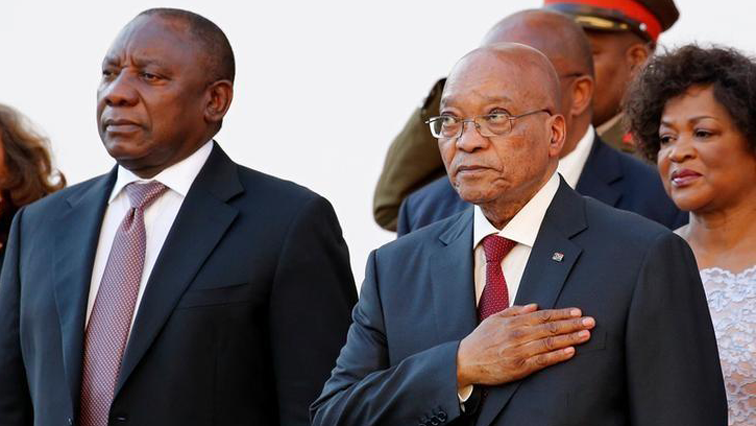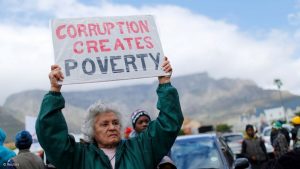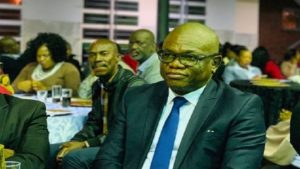It appears as if the Gupta family, known for being politically connected to South Africa’s President Jacob Zuma and accused of “state capture”, have not had a good start to the year. The country’s Asset Forfeiture Unit has indicated that they’re pursuing 17 cases to recover R50 billion linked to state capture and corruption. The unit, which falls under the country’s National Prosecuting Authority (NPA), is reportedly going after the Gupta family and their associates.
The phenomenon of “state capture” in South Africa epitomises unconstitutional conduct. It has involved private interests using illegal means to gain influence over public representatives or state officials with the aim of getting them to take decisions that benefit both parties but compromise the public interest and the constitutional integrity of state institutions.
Capturing the criminal justice system is critical to those pursuing the state capture agenda: it becomes a self-fulfilling prophecy in the sense that it’s aimed at securing protection against any criminal prosecution. In turn this creates a favourable environment for ongoing state capture.
The question then is whether the latest developments of possible charges and asset seizures requested by the NPA against Gupta related companies amount to a paradigm shift?
To answer this question we need to keep in mind four factors: the rule of law, the relationship between politics and the criminal justice system and the professional independence of the country’s prosecuting system. In addition, it’s important to remember that putting a stop to state capture requires a myriad of actors to play their part.
Other countries have faced this predicament. Examples of investigations with explosive political implications include the FBI’s probe into Hillary Clinton’s e-mails days before the 2016 American presidential election and the Robert Mueller special investigation into possible Russian interference in the US election.
The difference in South Africa is that the democratic checks and balances to prevent long-term harm are not yet fully consolidated.
The rule of law
State capture and the rule of law are mutually exclusive. This is because the rule of law depends on effective judicial independence and incorporates the separation of powers principle.
South Africans have welcomed the latest developments because they believe they will strengthen the rule of law. For many this principle is sacrosanct because it’s part of a democracy as well as quality government. In principle it insists on equality before the law for all, and no exceptional treatment.
It also confirms that all disputes in society involving constitutional or legal principles, governance matters and private matters affecting legal rights must – in the final instance – be resolved by judicial means.
In addition, the rule of law confirms that all executive and administrative actions are subject to judicial adjudication or review.
A more complex issue is how the judiciary and criminal justice system can become entangled in political dynamics. How should a government relate or interact with its criminal justice component? What is the acceptable norm? On the one hand it is part of government. On the other it has to be independent.
The criminal justice system is immensely attractive to politicians in power who want to use its investigative and intelligence capacity to deal with political foes. This has certainly been the case in South Africa over the past decade.
The question is whether the latest actions taken by the NPA are a continuation of the abuse of its power, or the beginning of a genuine rule of law regime.
The new president of the African National Congress President Cyril Ramaphosa has said that he wants the NPA to act swiftly against those implicated in state capture. This is significant given that developments since the early 2000s have compromised the independence of South Africa’s investigative and prosecutorial institutions.
But South Africans should be cautious about uncritically accepting the latest moves as a new-found sense of independence. Is it not simply a change in allegiance from Zuma to the new ANC leadership?
Over the past 10 years the country’s criminal justice system has been exploited by the government to deal mainly with internal ANC factional dynamics. The country’s Revenue Service, which also has investigative and semi-judicial powers, has also been drawn into these dynamics. This is graphically captured in the book The President’s Keepers written by investigative journalist Jacques Pauw.
There are a number of examples of the criminal justice system being exploited for political ends. One of the most prominent examples was the 2007 “spy tape” saga. This involved taped conversations between former NPA and Scorpion officials in which the timing of Zuma’s corruption charges were discussed. In 2009 the tapes were appropriated by the National Director of Public Prosecutions as a justification to withdraw the charges because the conversations politically compromised the NPA. This, on its own, was an extraordinary self-indictment.
Another example was the Hawks and NPA investigations against Finance Minister Pravin Gordhan and SARS officials responsible for tax crime investigations. This was meant to neutralise the threat posed by the tax authority to Zuma’s networks.
The reverse side of this trend was numerous court judgements initiated by opposition parties, NGOs and foundations to counter executive actions deemed to be unconstitutional and to challenge parliamentary procedures or prosecutorial decisions. Often the judiciary landed up reprimanding the criminal justice system.
A paradigm shift?
The NPA’s new approach to the Guptas should not be seen in isolation. Other important institutions are playing their part in challenging bad behaviour.
For example, a parliamentary portfolio committee is making impressive inroads into poor governance and corrupt behaviour at the state power utility Eskom.
In the private sector South Africa’s main commercial banks have closed the bank accounts of the company owned by the Guptas, Oakbay Energy and Resources. Internationally companies implicated with the Guptas such as Bell Pottinger, McKinsey, KPMG have been called to account.
The international business response has been followed by court orders for the seizure of company assets. The prosecution of individuals could be next. This will be complex because in these situations it’s difficult to know who to prosecute when the scale of involvement is so widely spread.
Any prosecutions will have to satisfy the public’s quest for justice. They will also have to serve as a deterrent against a repetition of the mismanagement, criminal behaviour and political complicity in hijacking government institutions.
The main objective should be to restore public confidence in key institutions that make up the criminal justice system. These include the Hawks, NPA, state and crime intelligence and the revenue service. It is a huge task, not least because the NPA is caught in the shifting power relations between Zuma and Ramaphosa. This makes its mandate to act without “fear or favour” a Herculean task.
![]() The positive side is that the judiciary is not politically compromised in the same way.
The positive side is that the judiciary is not politically compromised in the same way.
Dirk Kotze, Professor in Political Science, University of South Africa
This article was originally published on The Conversation. Read the original article.






